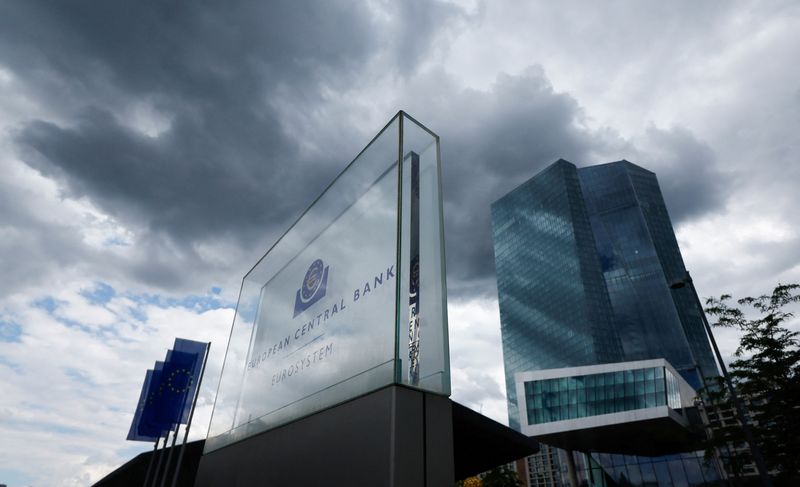
By Balazs Koranyi and John Revill
FRANKFURT/ZURICH (Reuters) – Central banks around the globe have plenty of room to keep cutting interest rates, and a limited “decoupling” from the U.S. Federal Reserve could continue as it pauses its own policy easing, according to policymakers and analysts.
Such a parting of the ways could cause problems for U.S. President Donald Trump, taking the sting out of his planned tariffs on trade and even raising the risk that U.S. companies and households will have to pay more to borrow.
The Fed is the world’s biggest central bank and usually leads others in setting the direction for policy. But the start of 2025 has been far from normal.
The United States is in robust economic health while many of the world’s other large economies are struggling, which combined with the uncertainty caused by Trump’s policies and threats to trade is tying the Fed’s hands on further rate cuts.
The irony is that the global economy’s adjustment to a threatened trade war is undoing some of the intent of Trump’s tariffs even before they go into effect, to the benefit of foreign companies that sell to U.S. customers.
Tariffs boost inflation at home, so the Fed is keeping interest rates high. This is strengthening the dollar at the expense of most currencies, making it more lucrative to export to the United States, contrary to what the administration wants.
Switzerland, for example, is already enjoying a windfall.
“A weaker franc would also help Swiss industry by making exports to the U.S. cheaper,” said Karsten Junius, chief economist at J.Safra Sarasin. “This could also offset the impact of any U.S. tariffs imposed.”
The 20-nation euro zone, a key target of Trump’s rhetoric because of its large trade surplus, could also offset some of the punitive charge via a currency that has weakened by 7% since early autumn.
“European companies, in order to defend their market share, might be willing to sacrifice a bit of their margin,” European Central Bank board member Piero Cipollone said. “Part of this sacrifice might be recovered through the exchange rate. So, in the end, the overall impact may not be that big.”
A weak currency is usually inflationary because it makes imports, particularly energy, more expensive. But inflation is heading down in many places, due not least to weak growth caused by trade frictions, and policymakers do not seem bothered by developments so far.
The ECB, the Bank of England, and the Bank of Canada have all cut interest rates in recent days even after the Fed said it was not in a hurry to move. The Reserve Bank of India and the Bank of Mexico, though coming from higher levels, also cut rates overnight.


